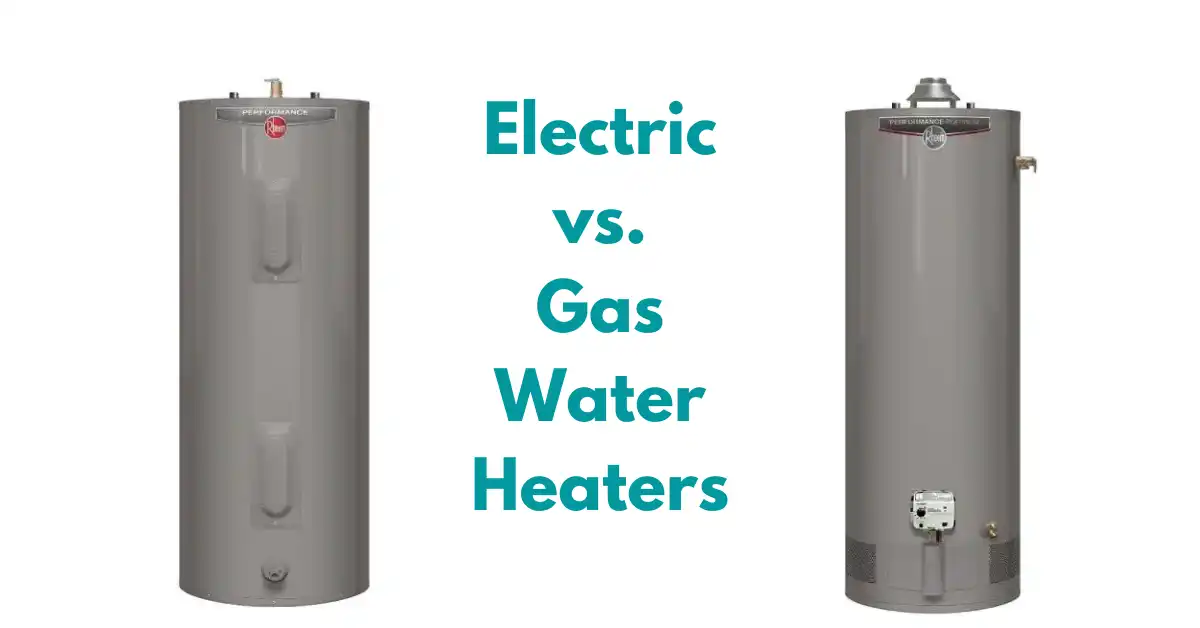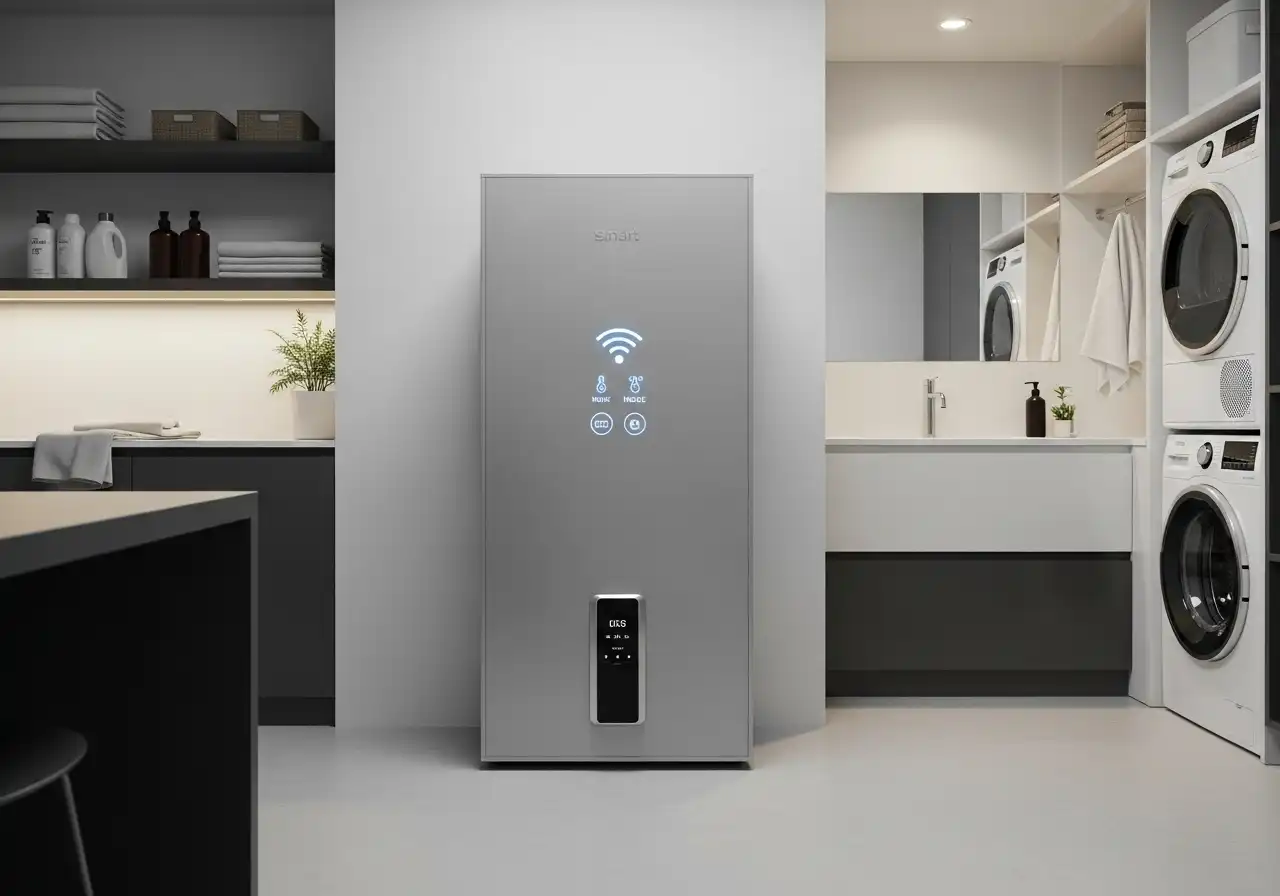When it comes to choosing a new water heater for your home, one of the most important decisions you’ll need to make is whether to go with a gas or electric model. Both types have their pros and cons, and the right choice for you will depend on your home’s infrastructure, your energy preferences, and your hot water needs.
In this blog, we’ll break down the differences between gas and electric water heaters, examining factors like efficiency, cost, and performance to help you make an informed decision.
1. How Gas and Electric Water Heaters Work
Before we dive into the differences, let’s first understand how each type of water heater works:
-
Gas Water Heaters: These heaters use natural gas or propane as fuel to heat the water. The gas burns to heat the water inside a tank, and the heated water is then stored until needed. Gas water heaters typically have a burner located at the bottom of the tank, and they require ventilation to expel the exhaust gases.
-
Electric Water Heaters: Electric water heaters use electrical energy to heat water via an electric heating element. These heaters are generally simpler in design than gas models and don’t require a venting system. The heating elements are typically located within the tank, and electricity is used to heat the water directly.
2. Energy Efficiency: Gas vs. Electric
Energy efficiency is a crucial factor when deciding between a gas or electric water heater. Generally, electric water heaters are more energy-efficient than gas models in terms of direct energy use, but gas heaters often have a lower operating cost.
Gas Water Heaters:
-
Pros: Gas water heaters typically recover hot water faster than electric models, which can be a big advantage if you have a high demand for hot water in your home. Gas is also generally less expensive than electricity, meaning operating costs can be lower in some areas.
-
Cons: Gas water heaters are less efficient than electric models. Some energy is lost through the venting system, and gas prices can fluctuate, leading to variability in your energy costs over time.
Electric Water Heaters:
-
Pros: Electric water heaters have a higher efficiency rating, as nearly all the electricity used goes into heating the water. There are no losses due to venting, which makes them more efficient in terms of energy use. Additionally, electricity rates are relatively stable in most areas.
-
Cons: Although electric water heaters are more efficient, the cost of electricity is typically higher than natural gas. This can make operating an electric water heater more expensive in the long run.
3. Initial Installation Costs
When considering which type of water heater is right for you, the cost of installation plays a significant role.
Gas Water Heaters:
-
Installation Costs: Installing a gas water heater can be more expensive because of the need for venting and, in some cases, gas line installation or upgrades. If your home doesn’t already have a gas line, this can add significant costs to the installation.
-
Venting Requirements: Gas models require a ventilation system to exhaust gases safely. This can add complexity and cost to the installation process, especially if your home isn’t already set up for gas heating.
Electric Water Heaters:
-
Installation Costs: Electric water heaters are generally cheaper to install because they don’t require venting or a gas line. If you have the necessary electrical connections in place, the installation process is typically straightforward and more affordable.
-
Electrical Considerations: If your home doesn’t have sufficient electrical capacity for an electric water heater (especially for larger models), you may need to upgrade your electrical panel, which can add to the cost.
4. Operating Costs
While installation costs are one-time expenses, operating costs will impact your budget for the lifetime of the water heater. The operating costs depend on the energy source you use, which varies by region.
Gas Water Heaters:
-
Lower Operating Costs in Many Areas: If you live in an area where natural gas is cheap, gas water heaters often have lower operating costs than electric models. Gas heaters are a better choice for larger homes with high hot water demands.
-
Efficiency Loss: Keep in mind that while gas water heaters may have lower fuel costs, they are less efficient at converting energy into usable heat, meaning you could still end up using more energy overall.
Electric Water Heaters:
-
Higher Operating Costs: Generally, electric water heaters have higher operating costs, as electricity tends to be more expensive than gas in many areas. However, if you live in an area where electricity rates are low or if your home has renewable energy sources (like solar power), electric water heaters may be a more affordable option.
-
Steady and Predictable: One of the benefits of electric water heaters is the stability in electricity rates. Unlike gas, which can fluctuate, your electricity rates are typically more predictable.
5. Performance: Which Heats Water Faster?
The performance of a water heater depends on how quickly it can heat up water to meet your needs. For large families or homes with high hot water demand, this factor is especially important.
Gas Water Heaters:
-
Faster Recovery Time: Gas water heaters typically have faster recovery times than electric models. This means they can heat more water in less time, making them a great choice for households that frequently use hot water at the same time (e.g., multiple showers in the morning).
-
Good for Large Households: If you have a large family, a gas water heater’s quicker recovery can ensure you won’t run out of hot water.
Electric Water Heaters:
-
Slower Recovery Time: Electric water heaters tend to have slower recovery times compared to gas models. This means that if you use a lot of hot water at once, you may run into issues where the hot water runs out before the tank refills.
-
Better for Smaller Households: Electric water heaters are often suitable for smaller households with lower hot water demand, where slower recovery times won’t be as noticeable.
6. Maintenance and Longevity
Both gas and electric water heaters require regular maintenance to ensure they run efficiently and last as long as possible. However, the type of maintenance and the lifespan of each system can differ.
Gas Water Heaters:
-
Regular Maintenance Needed: Gas water heaters require more maintenance than electric models. This includes ensuring the burner and venting system are clean and clear of debris. The gas valve also needs to be checked periodically.
-
Lifespan: Gas water heaters typically last around 10-15 years, though regular maintenance can help extend their lifespan.
Electric Water Heaters:
-
Lower Maintenance: Electric water heaters are generally easier to maintain, as they don’t require venting or regular inspections of burners. However, the heating elements should be checked regularly for wear and replaced when necessary.
-
Lifespan: Electric water heaters typically last 10-15 years, similar to gas heaters, and they require less maintenance throughout their life.
7. Environmental Impact
Both types of water heaters have an environmental impact, but it differs depending on the energy source.
Gas Water Heaters:
-
Higher Emissions: Gas water heaters produce more carbon emissions than electric models, as they burn fossil fuels (natural gas or propane) to produce heat. If you’re concerned about reducing your carbon footprint, this could be a factor to consider.
Electric Water Heaters:
-
Cleaner Option: If your electricity comes from renewable sources like solar, wind, or hydroelectric power, electric water heaters can be a much cleaner option. They have lower direct emissions than gas models and may be more environmentally friendly if paired with renewable energy.
8. Which One Is Right for You?
The decision between a gas or electric water heater comes down to several factors, including your household’s needs, energy preferences, and budget.
-
Choose a Gas Water Heater if:
-
You have access to natural gas or propane at a reasonable price.
-
You have a large household with high hot water demand.
-
You want faster recovery times and can manage the additional installation and maintenance costs.
-
-
Choose an Electric Water Heater if:
-
You prefer a simpler installation process and have access to affordable electricity.
-
You have a smaller household with moderate hot water needs.
-
You want a more energy-efficient system with lower maintenance requirements.
-
You’re interested in reducing your environmental impact, especially if you use renewable energy.
-
9. Conclusion: Make an Informed Decision
Choosing between a gas or electric water heater is an important decision that will affect both your comfort and your utility bills. Consider your household size, energy costs, hot water usage, and environmental concerns when making your choice. Whether you opt for the affordability and speed of a gas water heater or the efficiency and simplicity of an electric model, understanding the pros and cons of each will help you select the best option for your home.


